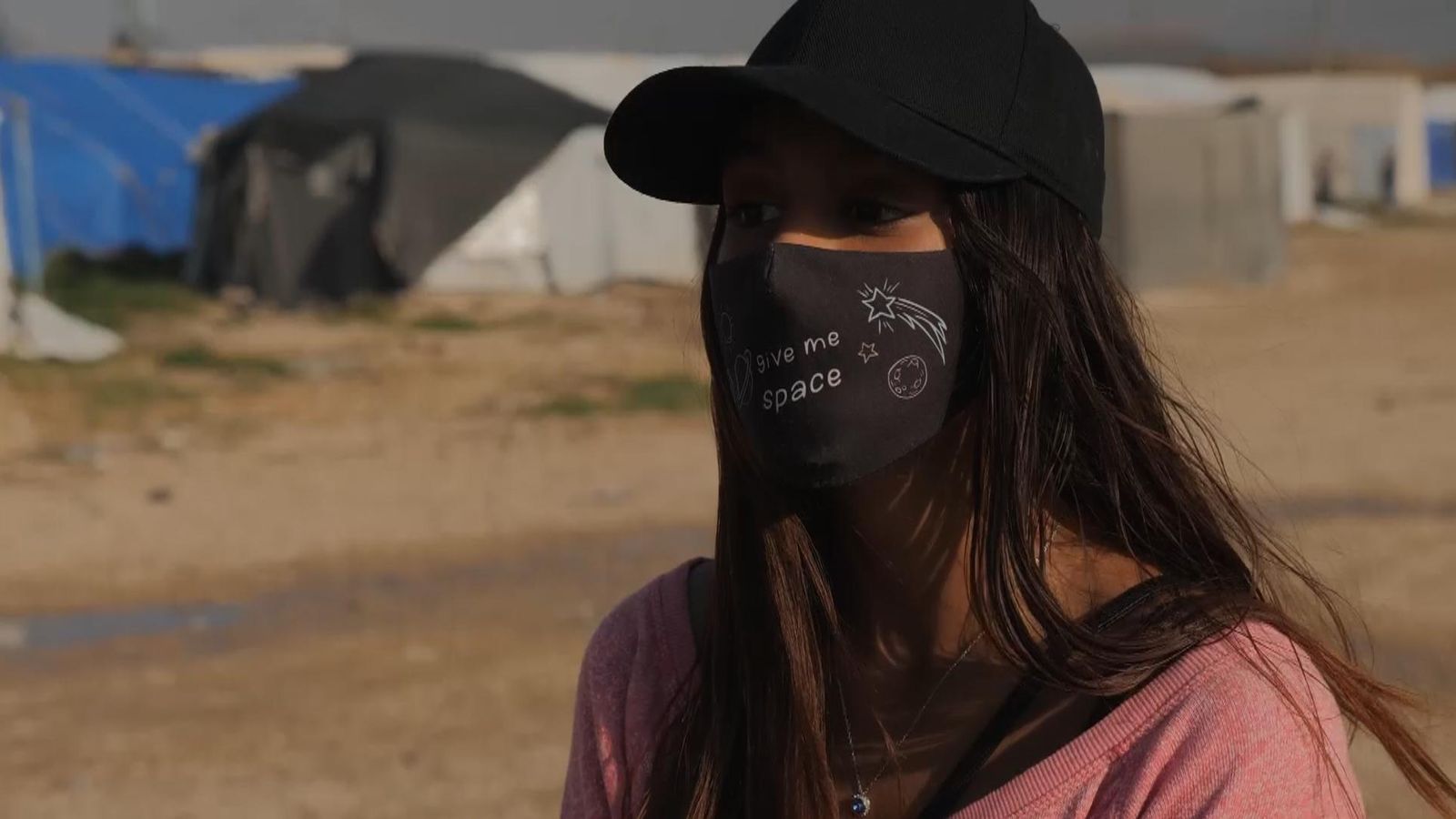“Can I keep my mask on? I’m looking ugly today,” Shamima Begum asked me when we met in north-east Syria just over a year ago.
Her appearance, in yoga leggings, baggy sweatshirt and baseball cap, was so different from the strict black Islamic dress she wore when she was first found in Syria in 2019.
Over her years in detention she has undergone a transformation.
Read more: Shamima Begum loses legal case over British citizenship and return to UK
It’s hard to know whether this has been a deliberate manipulation to look more like a harmless, normal young British woman, or a genuine attempt to distance herself from her years as an IS-bride.
She has used interviews with me, and other media outlets, as an opportunity to put forward her side of the story, but – unlike other British women in her situation – she’s put herself in the spotlights of infamy and you could argue she hasn’t helped herself in doing so.
We spent a number of hours walking around the camp with her.
Shamima Begum’s lawyers: ISIS campaign to attract recruits was ‘sophisticated and successful’
Shamima Begum loses legal case over British citizenship and return to UK
Shamima Begum – latest: Why ruling IS bride cannot return to UK is ‘surprising’
She showed me the tent she lives in and we met some of her friends who are also former IS-brides.
She is free to move around, but access to communications is limited and she cannot leave. It is an open prison.
She conceded she would almost certainly go straight to prison if she was to return to Britain, and said she was guilty of going to Syria, but rejected allegations she was involved in terrorist activity and said she was groomed as a young teenager.
Her lawyers also argue that she is a victim of human trafficking.
The problem with her case, which so vehemently divides opinion, is that we only hear her side of the story.
The British intelligence which led then-home secretary, Sajid Javid, to remove her citizenship in 2019, remains classified, perhaps for good reason.
The result, however, is that the British government is effectively asking the public to trust them on this one.
There is also the issue of whether she would be convicted if she was allowed to return.
Although she is accused of many grim crimes, gathering the requisite evidence to put to a court, from the violent war zone that was Syria, is extremely hard.
Be the first to get Breaking News
Install the Sky News app for free
Please use Chrome browser for a more accessible video player
It might be that the British government isn’t sure whether it could present enough evidence to convict her.
Whether right or wrong, it’s a matter of fact that Britain is out of step with most of the western world on this issue, now that countries including Spain, Canada and Germany are repatriating their nationals and putting them on trial.
For now, Shamima Begum isn’t coming back to Britain, nor is there any indication she will be extradited to Bangladesh (the country Britain says she is now a citizen of).
And so she will remain in Syria in a legal limbo and in the custody of Kurdish forces who control the region but warn they cannot keep control of so many foreign prisoners ad infinitum.






